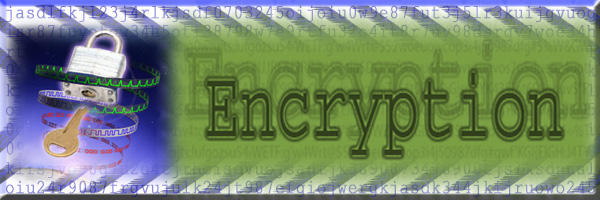

The future of cryptography appears to be heading mainly in the direction of higher security but also more user-friendliness. People and companies these days need an increasingly greater amount of security to be able to ward off hackers who are constantly developing new technology to hack into computers and steal vital information from them, usually to use in purposes that would futher victimize the people and companies whose information was stolen. However, there appear to be two main things that people working in the field of Internet security and encryption have to think about in the near future. First of all, more and more laptops are equipped with wireless Internet access, and many businesspeople use this wireless Internet to get their jobs done out on the road where there is nowhere to physically “hook up” the Internet connection. Because of this free roaming signal, increased security measures have to be instated to keep hackers from intercepting these wireless signals. Second of all, wireless Internet access is no longer limited to laptop computers. Devices such as cell phones, communicators, PDAs and MP3 players are starting to increasingly become more and more often equipped with at least some access to the Internet. These devices all run using different technology to connect to the Internet, and they are all as vulnerable to hackers as laptops using wireless Internet access are.
However, there is a flip side to this. According to one report, too much encryption falling into the wrong hands could create a system of anarchy by essentially giving the people too much ability to encrypt information necessary for the government to regulate things such as collecting taxes when Internet transactions take place – a high enough level of encryption could shield them from the government being able to find out about such transactions and, as a result, being able to more easily evade government processes such as taxes. In addition to that, court orders in which the government would gain access to important data would not be able to be carried out. On the one hand, encryption can be a very useful tool. It keeps hackers for the most part away from sensitive information, and it also keeps it from being leaked to third parties who could do anything with it from adding it to a SPAM mailing list to using it to commit identity theft. Unfortunately, much of this technology can be easily compromised, as many hackers find ways to crack the codes used to encrypt files and then steal information or release fake versions of encryption programs that are actually Trojan horses. On the other hand, too much of this can lead to a state of anarchy where everything ends up under the radar and the government can no longer carry out necessary processes.
One of the technologies currently being developed is quantum key distribution. This uses photon state to encode information (this uses the Heisenberg uncertainty principle that the momentum and position of any given particle cannot both be figured out at the same time, meaning that the intruder would need to have the actual particle rather than a way of cracking a code in order to break in and steal information). This also encrypts information far faster than other methods. Unfortunately, it is extremely difficult to implement, especially across long distances. In 1989, when this was first developed, quantum signals could be sent 32 centimeters. This is currently up to 31 miles using fiber optic cables, but considering the globalization of the Internet, 31 miles still isn’t very far for most purposes. This technology is still being developed today to not only become even more secure but also to be able to travel farther – possibly far enough to be used in the context of global computing.